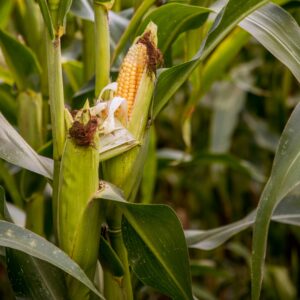
Canola, Brassica Napus, (also known as rapeseed) is an oilseed crop. It is an excellent rotation crop, and should be used to increase profits of crops such as maize and wheat. Advantages include the lowering of root knot nematodes and Phytophtera.
The growing of canola needs good management. Special care should be taken with harvesting of the small pips. Road and rail trucks need to be sealed tightly in order to prevent losses in transit.
Canola is primarily used for manufacturing of the following:
Source: Canola Market Value Chain Profile at www.dalrrd.gov.za and Canola brochure from the same website.
The major producer of canola is the EU, followed by Canada, China and India. The major exporter is Canada with the EU a distant second. The EU, Japan and China are the major importers (USDA, 2023).
2020 saw South Africa export canola for the first time ever – 30 000 tonnes, to Europe (Bureau for Food and Agricultural Policy [BFAP], 2021). Exports have not only continued, they are expected to increase over the next decade (BFAP, 2023). This is on the back of favourable canola prices trading at record levels and producers moving from barley to canola (BFAP, 2023).

Find the Grading Regulations for canola and the requirements for grain exports at http://agbizgrain.co.za.
Canola is an oilseed crop grown mainly in the winter rainfall regions of the Western Cape, although it is also farmed in the North West, Limpopo and Northern Cape provinces. It competes with barley and wheat when farmers choose what to grow, and with other plant oils, mainly sunflower oil and soy oil, for the local market. The shift away from barley towards canola continues (BFAP, 2023).
In South Africa, canola is primarily used for the manufacturing of canola oil and oil cake. Canola is crushed mostly for the vegetable oil market, but it also provides “an attractive alternative source of protein for animal feed, particularly in the Western Cape, where it is produced and processed (BFAP, 2023). Regarding its potential for biofuels, refer to the block below.
The canola marketing season in South Africa commences on 1 October and ends on 30 September the following year.
Notes from Bureau for Food and Agricultural Policy (BFAP) Baseline 2023-2032:
Area under canola increased by nearly 42 000 hectares in 2022 relative to average levels from 2017 to 2021, with production volumes expanding by 60%. Total domestic production exceeded 210 000 tonnes in 2022, from just 93 468 tonnes in 2017.
Assuming the introduction of new and improved seed varieties and continuous availability of these products, canola area is projected to reach 146 000 hectares by 2032, adding a further 56 000 hectares to current area.
According to Petrus Fouché of the PhytoEnergy Group, canola is a crop with enormous economic potential for producing biodiesel.
Sources: Canola Market Value Chain Profile at www.dalrrd.gov.za and Canola brochure from the same website; Bureau for Food and Agricultural Policy (BFAP) Baselines 2023-2032, 2022-2031, 2021-2030; correspondence from Petrus Fouche, PhytoEnergy Group.
Further reference:
Further reference:
Training and research
Visit the websites listed earlier on this page.